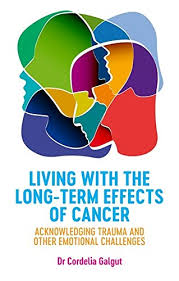
Are you ready to be 'radically honest"?
23 March 2021
In his book Radical Honesty, Brad Blanton argues passionately in favour of total honesty in relationships. It’s an appealing idea (at least to me), but is it realistic or even desirable?
I recommend Blanton’s book, which is a kind of polemic in favour of honesty. Even though he’s a therapist Blanton doesn’t mind swearing or being provocative and, while the book is a perhaps overlong and ‘messy’ in some parts, he does make some valuable points.
One important thing I took from it was how we often tie ourselves in knots trying to avoid talking about something important.

The false self
12 December 2020
All of us have a persona - by which I mean the ‘social self’, or the part of us that we project out into the world and which people who don’t know us well will recognise. That’s not a problem.
What is a problem is when we have become identified with a false self. This is a concept developed by British psychoanalyst Donald Winnicott, who argued that the false self develops when we have not been accepted for who are as infants. We have learned that we need to be a certain way in order to be accepted by those around us, especially parents. This is called a narcissistic wound and it relates to our deep sense of self.

Living with the long-term effects of cancer
9 November 2020
It’s often really hard for people who have had cancer to accept, and talk about, the longer-term effects of the disease and its treatment.
In many ways this is a taboo subject - the medical profession, friends and family usually expect the person who has been treated to be ‘grateful’ about the ‘ success’ of the treatment and to return to their normal life.
Yet psychologist Cordelia Galgut points out in her book, Living with the Long-term Effects of Cancer, that life after cancer is often extremely challenging psychologically and physically.

The importance of of the ‘wild man’ archetype
18 October 2020
Many men have lost their ‘wild man’. What do I mean by this? I’m talking about the part of men that symbolises passion, wildness, strength, aggression. It is often seen as men’s darker side, but while this energy can potentially be destructive it also contains many positives.
It may seem strange to promote this idea when we see all the damage that violent or domineering men have caused in the world.
But when I’m talking about the importance of the wild man energy I’m not talking about toxic masculinity, in which men oppress or bully others, but rather a healthy connection to the internal life force that enables a man to hold boundaries, not be pushed around, give up being a people pleaser.

We won’t find the ‘right’ partner but we may find the good-enough partner
4 October 2020
One of my favourite relationship thinkers is Alain de Botton, who does a good job debunking the expectations many of us bring to our intimate relationships.
Fuelled by the messages of pop songs, romantic comedies and fiction, many of us have been conditioned to expect our partner to be a ‘soul mate’. We will not only feel completely in love with this person but they will also be our best friend, our supporter, they will understand us completely and forgive us our flaws.
Read more: We won’t find the ‘right’ partner but we may find the good-enough partner

Our need for validation
20 September 2020
We all have a need to feel validated. By this I mean that what we feel, or how we are at some deeper level, is essentially ‘okay’.
Many of us have not received that validation as children. Or maybe we received validation for certain things (eg academic achievement, being responsible) and not for others (eg being sensitive, feeling angry).

Understanding our emotions
30 August 2020
“The heart has its reasons that reason knoweth not.”
- Blaise Pascal
The quote above from French thinker Blaise Pascal describes the immense power of our emotions and how our rational self often fails to control them.
That is often what brings people into therapy. They say, “I don’t know why I’m so angry/sad/anxious - it makes no sense.” They may sometimes add, “It’s just not me!” What they mean, of course, is the emotion does not match the ‘me’ they think they are or would like to be seen as.
So, emotions are important and therapy is sometimes criticised for being too focused on them. There’s the mocking stereotype of the therapist asking his client at every opportunity - “So, how does that make you feel?”

Therapy can make you less nice
16 August 2020
"I'm discovering that therapy can make you less nice."
Anonymous client
Becoming ‘less nice’ isn’t something that most people who go into therapy expect, or are looking for. But it’s often an unexpected consequence, which brings new freedoms and possibilities.
So, what do I mean by becoming ‘less nice’? For me, it’s about a combination of things. These include becoming more aware of our feelings and therefore of what really matters to us, and by discovering our deeper desires and values we gain the courage to say ‘no’ to people whose demands don’t match our values.
- Accepting our foibles
- Perfect love, imperfect relationships (book review)
- How we long for deeper connection
- Dealing with your inner critic
- The challenges of child-to-parent violence
- Using the language of 'parts' to communicate emotions
- 'Lowest of the low' narcissism
- Relationships can bring joy, but we also need time on our own
- Our attachment to being 'right'
- Couple therapy – making sense of emotions


